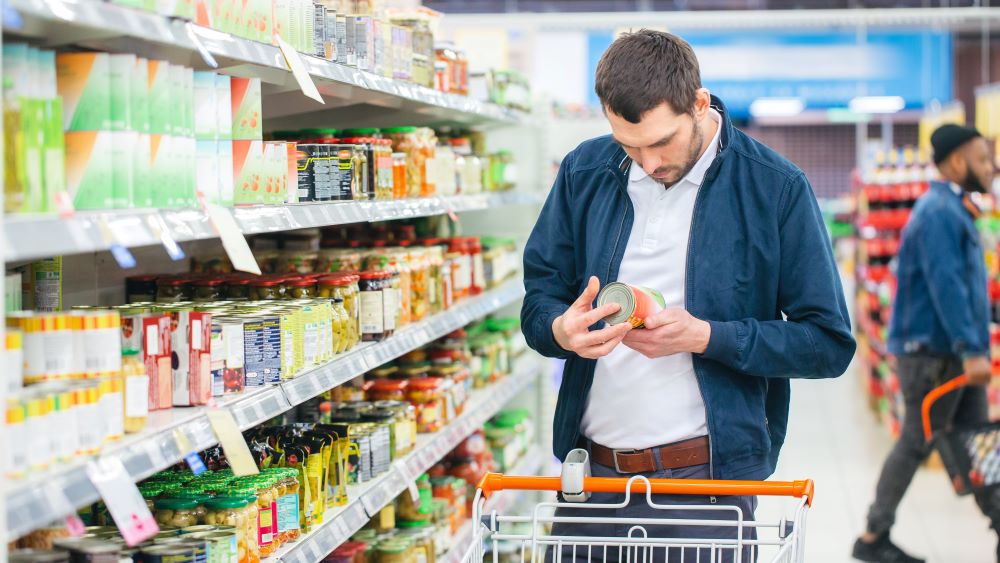
Retail inflation fell to its lowest level since September 2022, dropping from 6.9% to 6.2% between August and September, according to recent industry data.
Figures from the British Retail Consortium (BRC) released today (3 October) showed a dramatic reduction in the levels of annual food inflation, which fell 9.9%.
This is the first time since August last year that it fell to single digits.
Falling food costs
Helen Dickinson, BRC chief executive, said that staple goods – such as dairy, margarine, fish and vegetables – were all lower than last month. She said this was down to “fierce competition between retailers”.
The rate of price increases fell across all major food categories.
Inflation for fresh food slowed to 9.6%, down from 11.5%, the lowest level since last July, while ambient goods edged closer to single figures, falling to 10.4%.
Ambient goods includes sauces, preserves and cereals.
Easing pressure
The drop in prices may come as a relief to households, who have endured a cost-of-living crisis fuelled by post-pandemic inflation and compounded by Russia’s invasion of Ukraine.
Dickinson noted that reductions in the cost of back-to-school essentials, such as uniforms, will have alleviated pressure on families.
September saw a surprise jump in consumer confidence, which reached levels not seen since January 2022. Research group GfK attributed the rise to falling inflation alongside wage growth.
However, Mike Watkins, head of retailer and business insight at consumer intelligence service IQ, warned:
“There continues to be pressure on budgets with over half of households still feeling that they are significantly impacted by the continued increases in cost of living.”
Outlook
Christmas splurges could send food inflation higher, as last year, when festive food spending kept inflation at a 40-year high.
Dickinson is still optimistic that prices will stay low, anticipating that “shop price inflation [will] continue to fall over the rest of the year”.
The Guardian reports that fast food chain Greggs has already announced it won’t be raising prices ahead of Christmas, following favourable quarterly results it attributes to cost inflation easing.
